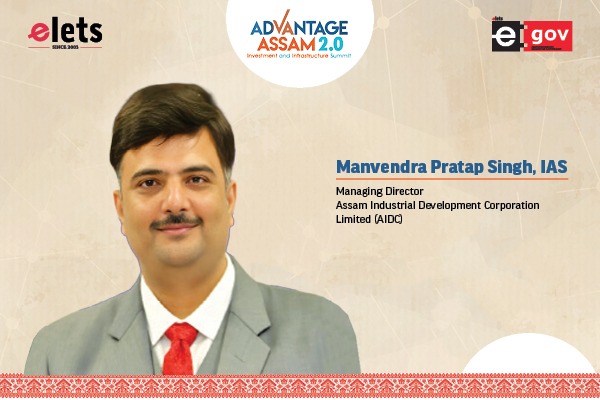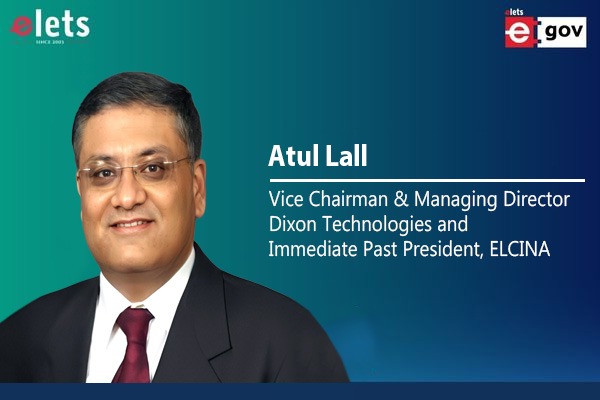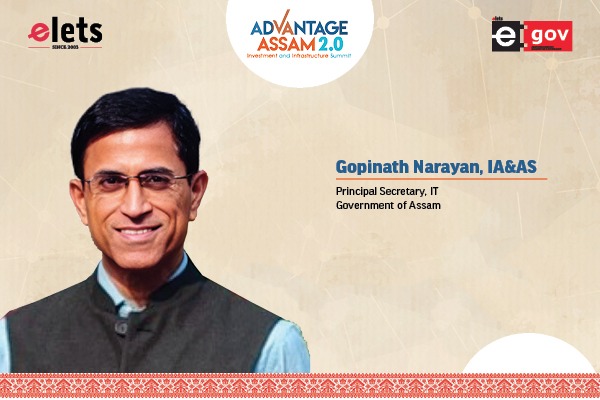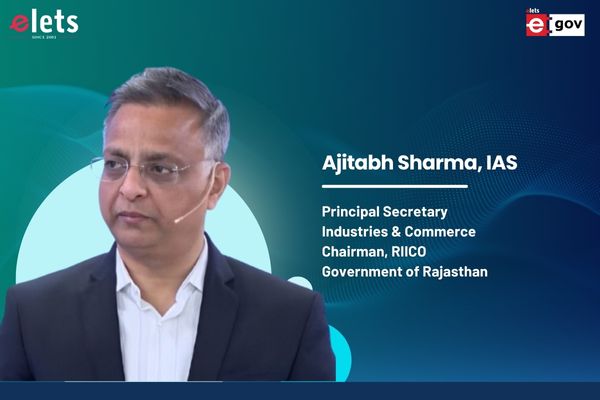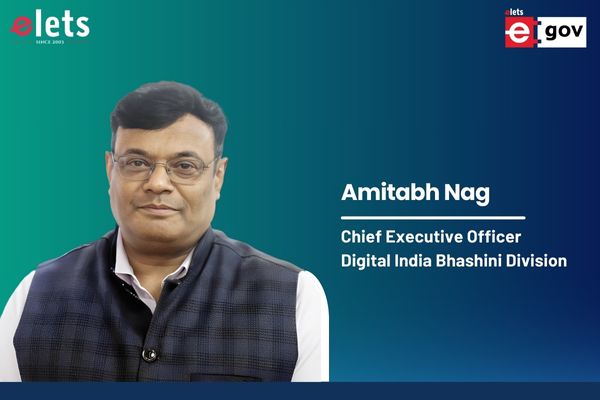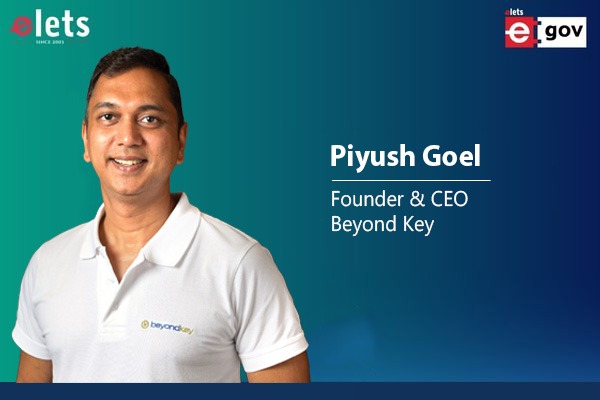 “In the area of e-Government, Singapore is definitely ahead than other countries in Asia. The other country that is probably catching up is India, if we look at the number of initiatives in India. Coming to the status of other countries, Malaysia is more in a catch up phase. In Malaysia there is lot of sponsorship, the challenge there is of implementation itself. The emphasis should now be more on creating awareness among citizens about various services,”opines Foo Jung Wei, Director, e-Government, Oracle Corporation, Asia Pacific, in a tête-à-tête with egov
“In the area of e-Government, Singapore is definitely ahead than other countries in Asia. The other country that is probably catching up is India, if we look at the number of initiatives in India. Coming to the status of other countries, Malaysia is more in a catch up phase. In Malaysia there is lot of sponsorship, the challenge there is of implementation itself. The emphasis should now be more on creating awareness among citizens about various services,”opines Foo Jung Wei, Director, e-Government, Oracle Corporation, Asia Pacific, in a tête-à-tête with egov
Please tell us about your regional spread?
We are at ASEAN region. We call it ASEAN, though it includes more than ASEAN countries, for example, Pakistan, Bangladesh, which comprise our second region. The third region is India. The fourth region is Australia and New Zealand. And, the fifth one is Korea. We may have the entire region. But we have the regional country e-Government plans. My manager would concentrate on the regions that he is responsible for. What I do as my job, is to provide overall guidance to all the five regions.

What is the span of the e-Government projects, which are the major projects of e-Government that you oversee in this entire region?
I would first tell you what is e-Government, since e-Government means different things to different people. Some people refer to it as a broader term anything that is IT government is e- Government. My definition of e-Government is the services directly provided to the citizens. For example, if the project involves the treasury reforms that does not come under me because that is more of internal reforms. But something that involves providing direct services to the citizens. For example, if there is e-Seva, there is a direct provision of services that comes under my purview. Similarly, e-Tax service comes under me, but for something like back-office processing there are teams looking after it. That is how we are organised internally in Oracle.
What are the major emerging trends in e-Governments projects today?

Today if you look at what is important for the governments in providing e-Services, its more on how do we link up. Let me put it this way, how do we link the services that the government typically provides in the traditional environment, and how do we actually move that forward electronically to the citizens. Let’s take an example of taxation. Previously, people used to scribble hundreds of forms. However, what is happening today is the government asking how do we reduce cost and improve convenience to the citizens. So I guess what is important today for the government is the convenience factor.
If we look at from the trends perspective as to what is going to happen, that is something that we have been engaged with a lot of clients, is that, look, providing a service that used to be manual and making it online is just a very small part of what can be delivered from the value perspective.
 I believe that the trend is moving forward. Most governments are really thinking about providing, what we call, collaborative services. A lot of services that are being provided are more of a translation from a manual to electronic perspective. But it is still very much, what I call, a oneto- one perspective. One-to-one perspective means that governments today are organised is by silos. Silos organise their text operations. For the citizens, yes, there is the convenience factor, but that does not need to go down to text. But what has not changed is the complexity of doing business with the government. You are running a business, for instance, entertainment industry; I am not sure how many agencies you will have to interact with for getting the license. So for the governments, the trend today is how do we actually simplify the interactions with the government. You as a businessperson, would not like to interact with so many different departments. I guess the value that you get today is that instead of filing manually, you are filing in a way, which is simpler, and you are interacting with government as one agency and not the different departments. I think the governments are slowly moving towards that.
I believe that the trend is moving forward. Most governments are really thinking about providing, what we call, collaborative services. A lot of services that are being provided are more of a translation from a manual to electronic perspective. But it is still very much, what I call, a oneto- one perspective. One-to-one perspective means that governments today are organised is by silos. Silos organise their text operations. For the citizens, yes, there is the convenience factor, but that does not need to go down to text. But what has not changed is the complexity of doing business with the government. You are running a business, for instance, entertainment industry; I am not sure how many agencies you will have to interact with for getting the license. So for the governments, the trend today is how do we actually simplify the interactions with the government. You as a businessperson, would not like to interact with so many different departments. I guess the value that you get today is that instead of filing manually, you are filing in a way, which is simpler, and you are interacting with government as one agency and not the different departments. I think the governments are slowly moving towards that.
The second trend is more of a gradual shift in focus by most governments of the definition of value. In implementation terms, value lies in providing services to citizens. The focus is more on the convenience factor, how best we can provide services that is convenient to the citizens. So it is too very much the governmentcitizen convenience. I also see there is gradually an emerging trend towards governments looking not just at the convenience factor, but what projects that are helping governments in terms of national competitiveness. Let’s say for example, a country, as part of its national competitiveness, views logistics as important. This is the case with Singapore where logistics is a very important component of national competitiveness. So for Singapore, the strategy projects will be that how can I use the Internet for eServices in order to enhance the national competitiveness. So the ability to set up, for example, logistics hub across the region, is going to be important for Singapore. In countries where, for example, education is very important, not just the local citizens but foreign citizens to the country, for countries like Australia, there would be a lot of efforts on how to use Internet and eServices in order to accomplish the task. So, what I see as a trend is that there is an increasing focus in the governments, on not just in providing services but also increase in focus on the niche projects that increases the national competitiveness of the country.
The third important trend that I begin to see happening in some of the more developed countries like Australia, for example, is not just looking at the external facet but to look at it internally, and that is going to be much more focused, not so much on the quality of services, but costsavings. For the last 20-30 years, governments have been providing a lot of internal, back office administrative functions. Almost every government agency has its own HR and finance. So the current trend is how to consolidate all these services like HR, finance into something that can be shared across the various agencies. Like, for example, what they are doing in Western Australia, instead of having 150 agencies that are HR and finance consulting, they are now consolidating. Consolidating is not something new. Most governments, in the last decade or so, have been consolidating, but they are consolidating from a technical angle. Shared services is about not just consolidating the technical aspects of it, but to be able to put the processes in the organisational order. And, the value proposition is quite compelling. So instead of having 150 agencies with150 HR, there would be one HR providing shared services to all other agencies. That is going to be a very important trend. We see that Australia, in this region, is probably the leader. But places like Singapore are really telling us how to actually do it. So I believe that within 1or 2 years that is going to be too important.
Which government, at the Asia level, is moving faster than the other government in the area of e-Government? Which country is approaching towards the concept of ‘one government’, is it Singapore or some other country?
I would say that Singapore is definitely ahead than other countries in Asia. The other country that is probably catching up is India, if we look at the number of initiatives being undertaken there. India’s challenge is not really the willingness to do it, but the real challenge is its size and diversity. To compare India with Singapore is not a fair process. India, if you look at the country level, they loose rather. But if you look India from more of a business basis, as to what each of the different local governments are doing, some of them are actually doing very well. Like for example, Andhra Pradesh. So India, if you look at it as a province, they are actually doing as well as Singapore. But if you look India as a whole, they may be little behind.
Coming to the status of other countries, Malaysia is more in a catch up phase. I would say that if you were to draw the entire stages of e-Government implementation, Stage 1 is to get all the services online, Stage 2 will be the stage of collaboration; I would say that Malaysia is probably, in between Stage 1 and 2. In Malaysia there is lot of sponsorship, the challenge there is of implementation itself. But there is not much awareness about the services initiated by the government in Malaysia as compared to that in Singapore. The government of Singapore also gives a lot of emphasis on e-Government apart from creating awareness among the citizens about its eServices.
What is your opinion about mobile governments, which is very emerging right now and people talk about mobile government? Other than advanced countries like Singapore, where you have a lot of mobile penetration, in countries like India, Pakistan, Bangladesh, where there is not much of IT infrastructure, it is still developing, how long will it take for mobile government to come into this picture? Will the mobile government actually really help?
I feel it is a bit difficult for us to look forward within the next 2-3 years time because the technology is moving very fast. There are probably two important factors in this. The first factor is simply technology in order to be able to provide richer content, and high level of interaction to the citizens. Mobile phones frankly are a very limited source for information, not much you can do about it. But with the advent of more advanced way of interacting that is going to be increasingly important. The second aspect is simply because of the richer content, what I call the digital divide. It is going to be really acute in the coming years. If you look at the country like China, that would not be a problem and it would go at a very fast pace in larger cities like Beijing, Shanghai, etc. But we should not forget that 70% of its population lives in rural areas. That is going to be a social problem because the haves will become increasingly better, but at the same time, the have-nots in the rural areas would be the left outs. That is going to be social problem in the longer term. What I do find to be encouraging is what the Indian Government is doing. If you look at their project e-Seva, the primary motive
of e-Seva is to be able to provide facilities to the rural people. And, they are doing it in a very innovative way. In India, if I am not wrong, they are implementing it in around 200 locations. I think this is a very positive step. Indian Government should embark on the e-Seva project in a much larger way.
The digital/social divide issue should be addressed. The Government should be taking a lot more interest in this, especially in large countries like India, China, not to forget Indonesia. All of this is important in the context of state of advancement in technology and everything. Unless Governments are able to provide an inclusive policy, I believe that digital divide is going to be a problem in the future. I am, therefore, very glad to see that Governments of India and Thailand are making efforts towards social inclusion of the masses in the technology arena.
“As Governments in Asia move in a little catch-up mode towards Americans, Australians or the Europeans, you need the best-in-class software. Oracle, if you compare with its competitors, CRM is going to be very important. Oracle is unique since it has both world-class infrastructure, and world-class CRM. That is the proposition that Oracle has for their clients. “
What is your future strategy or plan to have more initiatives in the public domain?
We have lot of plans. If you look at e-Government implementation, I believe that compared to our competitors, Oracle is going to be in a very unique position. Unique in the sense that in order to implement a good e-Government programme you need to have two very important components. The first component is what I call the technology infrastructure component – the middle-ware, databases, the identity management and so on. I strongly believe that Oracle is the leader in this area. The second component that is fast emerging in Asia region is the value-applications, things like CRM, Customer Data Hut, all of these are increasingly important. As Governments in Asia move in a little catchup mode towards Americans, Australians or the Europeans, you need the best-inclass inclass software. Oracle, if you compare with its competitors, CRM is going to be very important. Oracle is unique since it has both world-class infrastructure, and world-class CRM. That is the proposition that Oracle has for their clients. The e-Government programmes are so complex and diverse that our clients say to us, “Look I am too tired of having to integrate products from twenty different vendors, we are looking towards you. Can you provide everything?” We say, “Yes, if not 100%, then at least 90%”. So, that is the strategy of Oracle when moving forward, to be able to provide through a single stop, as much as a complete range. Thirdly, beyond infrastructure and beyond CRM, clients will be increasingly asking us for domain specific solutions and need-based solutions, like tax, social security. That is the direction that Oracle is moving forward. Within the next 18 months, we would be focusing on a lot in this area.
You have established ‘e-Government Centres of Excellence’ in various countries. What is the objective of these centres? You already have a Public Sector Group, so what is the definite agenda and objective of these second of these e-Government Centres?
Organisationally, a separate business unit runs the Centre for Excellence (COE). Quite broadly, the purpose of the COE is to work very closely with the government so that they are able to help them in a systematic fashion and guide them in their specific programmes. What my unit does is to make sure that the messages, the strategies, are consistent across the region. And, the COE would then take down strategies, the messages to the market and make sure that what Oracle is trying to do organisationally is best translated in a way that COE can work closely with the government.
Be a part of Elets Collaborative Initiatives. Join Us for Upcoming Events and explore business opportunities. Like us on Facebook , connect with us on LinkedIn and follow us on Twitter, Instagram.
"Exciting news! Elets technomedia is now on WhatsApp Channels Subscribe today by clicking the link and stay updated with the latest insights!" Click here!




